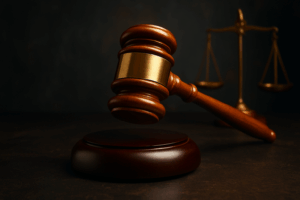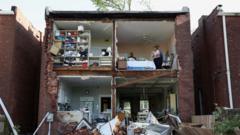Community groups in Louisiana's St. James Parish are fighting a controversial state law that prevents them from utilizing low-cost air monitors for advocating stricter pollution controls, alleging a violation of their constitutional rights.
Residents of "Cancer Alley" Take Legal Action Against Restrictive Air Quality Law

Residents of "Cancer Alley" Take Legal Action Against Restrictive Air Quality Law
Community activists in Louisiana file a federal lawsuit challenging a new law that restricts the use of air pollution data, citing free speech violations.
Since 2022, residents of St. James Parish, located in the heavily industrialized region of the Mississippi River commonly referred to as "Cancer Alley," have been employing low-cost air pollution monitors to gauge the levels of contaminants in their environment. However, a new Louisiana law has created significant obstacles for those efforts, making it illegal for individuals to use data from these monitors to call for tighter pollution regulations or enforcement actions.
Under this law, community members are mandated to invest in expensive air pollution monitors that comply with strict standards set by the Environmental Protection Agency (EPA) if they wish to use their data to claim violations of clean air statutes. Failure to adhere to these regulations could result in hefty penalties that can accumulate at a rate of thousands of dollars per day.
In response to this legislative action, local community organizations are now challenging the law in a federal lawsuit filed against the state of Louisiana. They argue that this law infringes upon their constitutional right to free speech by limiting their ability to utilize scientific findings pertinent to their health and environment. Caitlion Hunter, the director of research and policy at RISE St. James—an organization spearheading the monitoring initiatives—asserted that the law empowers polluting industries to suppress legitimate scientific inquiries.
Notably, Louisiana's law was groundbreaking as the first of its kind enacted in the United States, but it has spurred similar legislative activities in other states. Kentucky has recently passed comparable legislation, while West Virginia's legislature considered a similar bill earlier this year, although it ultimately did not pass.
The Louisiana Department of Environmental Quality has refrained from making any comments regarding the lawsuit, and attempts to reach out to Louisiana Attorney General Liz Murrill went unanswered.






















